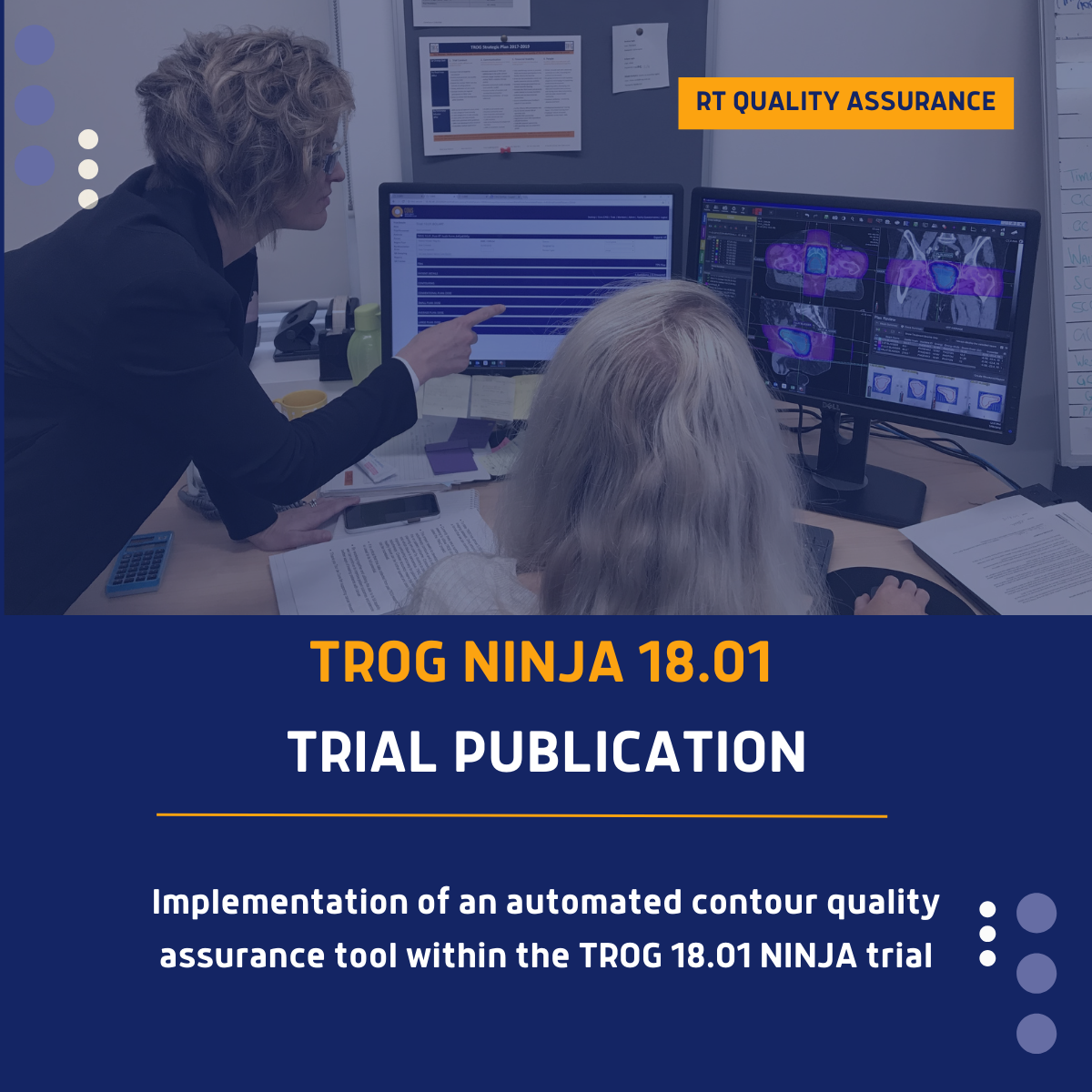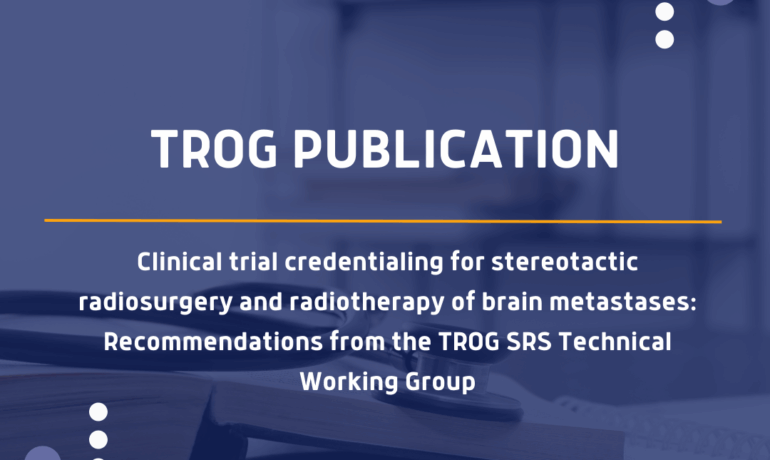LATEST NEWS: 25 November 2025
Vital quality assurance (QA) processes used in radiation therapy (RT) clinical trials could be automated in the future, to reduce resource and time demands on clinicians and researchers, a new study involving a TROG Cancer Research trial has revealed.
Quality assurance is a vital consideration in RT clinical trials, proportionate to risk, to ensure high-quality, reliable results.
Centres participating in RT clinical trials are often required to submit RT treatment planning data, which is reviewed manually, prior to patients undergoing treatment, however, this can be a resource intensive and time-consuming process.
This new study aimed to overcome these challenges, by implementing an automated contour QA tool within the TROG 18.01 NINJA trial, which is comparing two emerging schedules of radiotherapy in the treatment of intermediate or high risk prostate cancer.
The research team worked with TROG to deploy and evaluate the tool, enabling automated QA of approximately 50 patients’ radiation therapy target contours in the NINJA trial.
The findings, published in the Radiotherapy & Oncology journal (Green journal) this month, show that the automated process could be successfully deployed in the prospective setting and accurately identified protocol variations.
While there were some challenges identified in use of the tool, with a higher than expected false positive rate, its use saved radiation oncologists conducting peer review, up to 60 minutes per case.
The study acknowledged that there was still a need for intensive work by the central quality assurance team at TROG to process data, which could be addressed in the future.
“Future implementation should focus on workflow automation, including secure data upload, automated dataset validation, and seamless execution of the QA tool to reduce this burden,” the authors wrote.
Study author Philip Chlapp said the work laid the foundation for the future integration of automated contour QA into radiotherapy clinical trials, with the potential to reduce peer review workload while maintaining full QA coverage across the entire trial cohort.
TROG Head of Operation, Research and Quality Assurance, Alisha Moore and study co-author said: “We were delighted to collaborate on this valuable study, which provides an opportunity to critically consider the future of RT QA in clinical trials, encompassing intelligent automation, standardisation, and more efficient use of resources.
“Congratulations to the research team on this important step towards streamlining clinical trial quality assurance.”
- Read the paper in the Green Journal
Related Post
New guidelines developed by TROG for clinical trial use of stereotactic radiosurgery for brain metastases
LATEST NEWS: 27 January 2026 New guidelines to ensure
SUPREMO trial findings signal change in breast cancer treatment
LATEST NEWS: 6 November 2025 Radiotherapy can be safely




